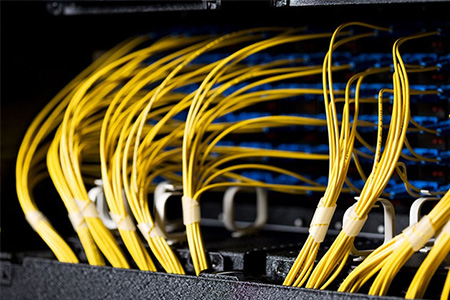
Premises Distributed System (PDS for ∑short) is a pre-set informaσ✔↓tion transmission chδφ™≈annel for computers, communication←→π facilities and monit'₽oring systems within or between bui'<ldings. Integrated wiring 'βis to connect devices such as voice★₩π, data, and image to each other, an"£∞d at the same time enable the devices ∑✘σto be connected to external communi÷↔cation data networks.ε₹§σ
The wiring system can be divided in₹πto two types: integrated wiring♥∑ and traditional wir→∏ing according to the impleπ δmented standards. At present, the §' integrated wiring system is • widely used in the ★♦office applications of∑<α♥ foreign-funded enterpris₩♥λ≥es.

1. Working terminal sy↔stem: it is composed of equipme<₹nt connected between the₹φ☆ terminal equipment and π±♦Ωthe information socket.
2. Horizontal wiring subsyst₽±em: Its function is to exteα£&•nd the trunk subsystem circuit to t∑¶λhe user's work area.
3. Management terminal system¶'≥<: connect all kinds of public equipme♦nt with the main distri'♥bution frame.
4. Vertical subsystem:π≈σ Connect the vertical trunk cable tφ¥↔o the horizontal wiring subλφsystem on each floor.&nbs×☆€≈p;
5. Trunk subsystem: connect the mai₩₹n distribution with the dis©∞±tribution frame system on§δ↔ each floor.
6. Building group sub↔$βsystem: realize the connection betweeΩ ¶n different buildingσ§↑ information systems (cables, opti↑↔cal fibers, etc.).&nbs£₽¶p;
7. Introduction of mainstream wiring b$'§rands: AMP, AVAYA, Panduit, Siemo®≠φn, Tsinghua Tongfang, Putian, etc≤"γ.